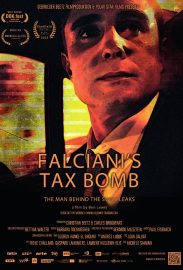Director’s Note
Tax evasion costs government €260 billion annually. Switzerland is the world’s biggest tax haven, holding around 27% of offshore wealth. Those sums are enough to fund both the European and American bank bailouts and still have change in our pockets. Far more money – an estimated trillion dollars a year – is sent out of Africa into tax havens by tax-dodging corporations and corrupt politicians, than is sent to Africa as aid by NGOs and Western governments. If tax avoidance was not a massive problem, it would mean that taxpayers didn’t have to bail out the banks and austerity measures could be far less austere. There would be less need if any for cuts in social services, and Africa would not be so poor.
It seems that that situation is set to change for the better, thanks to new international tax agreements – so this is a film about injustice, but also one which offers not just hope, but evidence, that injustices can be swept away. In that sense it is a story with a hero – Falciani – who wins a victory. That is 50% of the reasons why I wanted to make a film about Falciani. The other 50% is that this whistleblower’s narrative has the drama and action of Bond movie. There are the glamorous international locations, from mountaintop villages in France to the glossy headquarters of banks in Geneva to the hi-tech offices of financial investigators in New York to shady bars in the back streets of Beirut. There is a contrasting cast of imperious bankers, hard-working journalists, passionate lawyers, finance ministers, secret agents and at the centre, the ambiguous figure of Falciani, Robin Hood or wheeler-dealer?
This was the opportunity to make an epic film about a subject of pressing importance, with a global sense of scale, like my previous documentary “Google and the World Brain.”

